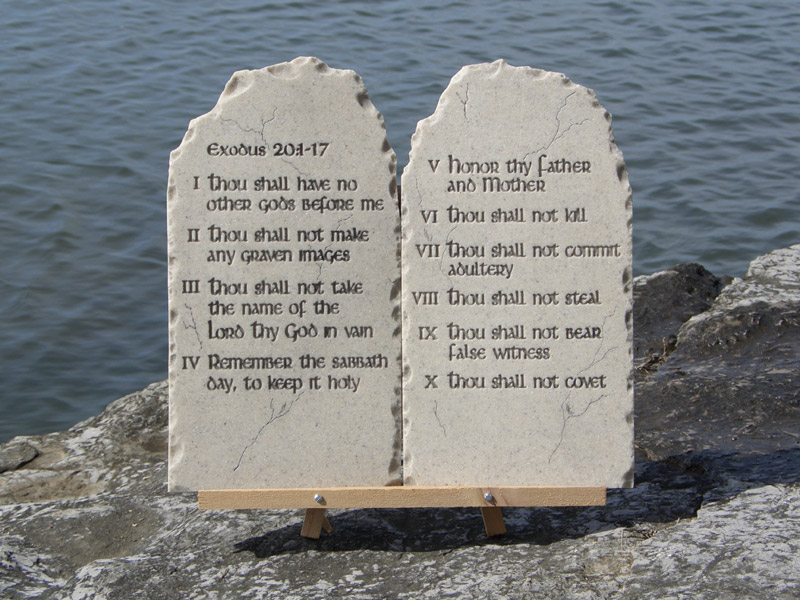There are some things worth getting mad about...

Freedom is one of those. Or at least, the lack thereof.
Movies like "Amazing Grace" and books like "Les Miserable" stir something deep within me as I see people battling for the cause of freedom. It is one of the things I am born to do: champion the cause of Liberty and learn the language of Freedom, as I call it.
My definition of "the language of Freedom"? To be able to articulate, persuade, and reason in behalf of the cause of liberty and freedom. Very few things are more important to me than that; in fact, God and family are the only ones.
In order to learn how to this, I felt inspired to turn to something called "Leadership Education." According to Oliver DeMille, in his powerful lecture last year titled "7 Keys and 4 Phases," the key ingredients in a leadership education is the study of classics and the study of history.
When I heard him say that last year, I though, "Great! That's what we are doing in our homeschool!"
For the past few years, we have been working our way through an incredible historical series by Susan Wise Bauer:



These books have everything in them...all from sources as original as you can get! You read all sorts of crazy things about kings and messengers, generals and slaves, sometimes in their very words :). Her writing style is incredible, with stories that are written as they were lived...as an adventure and about real people!
And, in studying this history, I can see how important it is to know our history so that we may learn from it!
In all the cultures and time periods I have studied so far, government cannot be good government without virtue of the people! Time and again, a virtuous person will come to power, do good on his or her "watch" in power, and then the society will topple and be overthrown by the corruption and deviousness of the next individual or group in power. Time and again. You get people in power who are trying to use the power of the government to do good things and find that they have to fight continuously against the corruption of people around them! One poor chap in China tried to abdicate three times and retire to a monastery just so he could get away from it all...but he was too good and the people would not let him go!
So, going back to my original passion about freedom, I want to talk about that a little bit more. Want to really get my dander up? (Listen carefully, Daddy Clyde :)...here's what you've always wanted: the key to making me ready to fight!)
Tell me the government has "told" me yet another way to run my life.
Do you know who "the government" is? My neighbor. It is no
all-powerful, all-knowing entity of accumulated knowledge. It is the
body that we have given the power to create laws on behalf of all of us to maintain our freedom, by
securing some rights.And do you know something else? We lose freedom when people worry about personal "rights" that they want "secured" out of fear of the lack of virtue in others.
Let's look at that word: Virtue. To me, part of that word "virtue" is the quality in a person that drives them to take responsibility for themselves and those in their stewardship in a way that respects the rights and responsibilities of others...all with a sense of accountability to some higher good.
Here is another way to look at it :):

Look familiar :)? We can also look at Cicero's summary of what he calls "natural law." What is natural law? First of all, Cicero defines Natural Law as "true law." Then he says:
Just think. If everyone observed these simple maxims, found in the 10 commandments and their consciences, and echoed in Cicero's "Natural Law," would we need government? No. Of course not, other than perhaps as some minor local tax collector who would gather funds to build roads or as some judge between minor cases of misunderstandings. People would do what is good and right and fair, without anyone trying to force them to do it, and without anyone trying to get out of it :)."True law is right reason in agreement with nature; it is of universal application, unchanging and everlasting; it summons to duty by its commands, and averts from wrongdoing by its prohibitions.... It is a sin to try to alter this law, nor is it allowable to repeal any part of it, and it is impossible to abolish entirely. We cannot be freed from its obligations by senate or people, and we need not look outside ourselves for an expounder or interpreter of it. And there will not be different laws at Rome and Athens, or different laws now and in the future, but one eternal and unchangeable law will be valid for all nations and all times, and there will be one master and ruler, that is God, over us all, for he is the author of this law, its promulgator, and its enforcing judge. Whoever is disobedient is fleeing from himself and denying his human nature, and by reason of this very fact he will suffer the worst punishment." (The Five thousand Year Leap, p. 40)
So, going back to what I have read in history and in my study of governments and society, there is no possible form of government where people can be free to obtain and use their money and resources to support their lives and families without virtue of the people. None. There is no such thing as a government powerful enough to force people to do good, without giving it the power to force them to do evil.
Historic and modern events support the common idiom:
Absolute power corrupts...absolutely.
The Founding Fathers of the United States of America knew this from their own study of history, thus creating our Constitution with important limitations and safeguards. However, even they knew that only with virtue of the people would we be able to reap the benefits of their work, and use the Constitution for the intent for which it was created.
We must echo Elaine Dalton's call for a "return to virtue" as we look at society. As people look to their hearts and their God, in whatever form they worship Him, they will know what they must do, and what that answer is for themselves.
Ahhhh. But how to encourage people to do that, to choose to sacrifice and be virtuous over the pursuit of selfishness? How do we encourage people to not be dishonest, to not take advantage of one's neighbor, to honestly look at what they have and what they need and use the excess to reach out and help others?
That remains the question to be answered before we can answer the question how to maintain a government that perserves our freedom.
It must begin, one person at a time, and it must begin today...with you and with me.d
Obviously, I have a long way to go in my effort to learn how to make my passion for freedom articulate and clear :). I will trust in God and keep doing what I can, one day at a time.
**************************
Excerpt from "The Divinely Inspired Constitution"
U.S.
citizens have an inspired Constitution, and therefore, what? Does the
belief that the U.S. Constitution is divinely inspired affect citizens’
behavior toward law and government? It should and it does.
U.S. citizens should follow the First Presidency’s counsel to study the Constitution.
17
They should be familiar with its great fundamentals: the
separation of powers, the individual guarantees in the Bill of Rights,
the structure of federalism, the sovereignty of the people, and the
principles of the rule of the law. They should oppose any infringement
of these inspired fundamentals.
They
should be law-abiding citizens, supportive of national, state, and
local governments. The twelfth Article of Faith declares:
“We believe in being subject to kings, presidents, rulers, and magistrates, in obeying, honoring, and sustaining the law.”
The Church’s official declaration of belief states:
“We
believe that governments were instituted of God for the benefit of man;
and that he holds men accountable for their acts in relation to them. …
“We believe that all men are bound to sustain and uphold the respective governments in which they reside.” (D&C 134:1, 5.)
Those
who enjoy the blessings of liberty under a divinely inspired
constitution should promote morality, and they should practice what the
Founding Fathers called “civic virtue.” In his address on the U.S.
Constitution, President Ezra Taft Benson quoted this important
observation by John Adams, the second president of the United States:
“Our Constitution was made only for a moral and religious people. It is wholly inadequate to the government of any other.”
18
Similarly,
James Madison, who is known as the “Father of the Constitution,” stated
his assumption that there had to be “sufficient virtue among men for
self-government.” He argued in the Federalist Papers that “republican government presupposes the existence of these qualities in a higher degree than any other form.”
19
It
is part of our civic duty to be moral in our conduct toward all people.
There is no place in responsible citizenship for dishonesty or deceit
or for willful law breaking of any kind. We believe with the author of
Proverbs that “righteousness exalteth a nation: but sin is a reproach to
any people.” (Prov. 14:34.) The personal righteousness of citizens will strengthen a nation more than the force of its arms.
Citizens
should also be practitioners of civic virtue in their conduct toward
government. They should be ever willing to fulfill the duties of
citizenship. This includes compulsory duties like military service and
the numerous voluntary actions they must take if they are to preserve
the principle of limited government through citizen self-reliance. For
example, since U.S. citizens value the right of trial by jury, they must
be willing to serve on juries, even those involving unsavory subject
matter. Citizens who favor morality cannot leave the enforcement of
moral laws to jurors who oppose them.
No comments:
Post a Comment